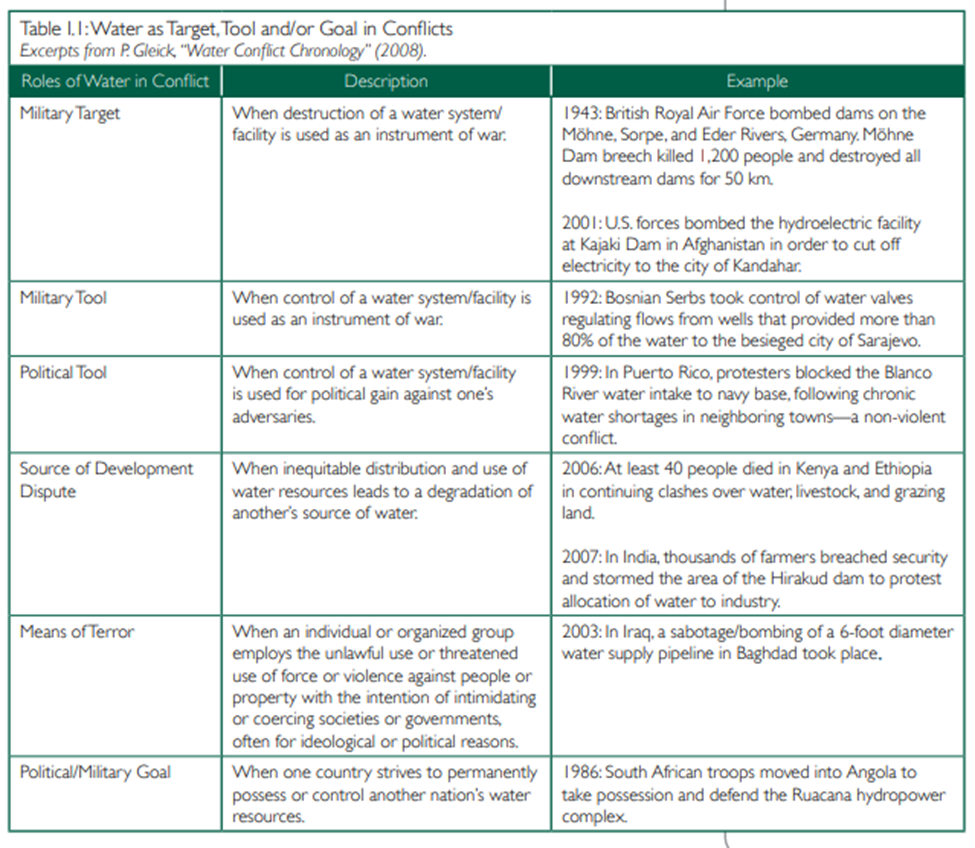Water as a Peace-building Tool
Everybody knows how vital the water is for living things. Water cannot be comparable to any other commodity, such as gold, petroleum or diamond. Even though the world is surrounded by %70 of seas, only %2 is drinkable water for all of us. That’s what makes water rare, and obviously, no one can go without it for up to three days. Nations not only need to be careful not to pollute this priceless source but also search for agreements to tackle the water-sharing problems. In two exemplary cases (Uganda and Israeli-Palestinian) solidarity played a mutual support role for a common interest.
The Factual Approach to Water
In India, Jordan and Syria some villagers must travel up to 40 km to arrive at the water supply. More than 1.2 billion people today lack access to clean drinking water. 1 out of 8 people search water sources every day. 1 out of 6 people have no access to a toilet in the world. Every 20 second a child dies because of an unclean water. %50 of the sub-Saharan African population don’t have access at all to clean water.
Consequently, the fight over water has become today’s reality.
We observed that 14 of the world’s 20 mega-cities started to experience water scarcity. Since the beginning of 2000’s cities such as Los Angeles, São Paulo, Cape Town, California, Kuwait City, Abu Dhabi, Doha, Gaza city search solutions for their water insufficiency. Lake Chad, Aral Sea, Lake Popoo, Urmia, the Great Salt Lake, Burdur, Egirdir, Aksehir, Acigol, Tanganyika, Assal, Faguibine, The Dead Sea and Titicaca are examples of lakes which shrink and hereby reducing flows into water levels.
Door Steps to Global Water Crisis 2030
According to the experts on one side, the planet is getting dry, and the demand for water will rise % by 40 by 2030. The scenario of 2 billion new people joining us will increase the water demand drastically even before 2030. This urge to “not have enough” vital sources of life forces the world to form a better solidarity. Starting today, we should use water sources carefully!
The demographic increase has repelled the UN to define access to water and sanitation as a human right.

4 Main Area Of Water Disputes
Water conflict generally occurs in four main levels on the world: internationally, globally, locally and national level.
International: The conflict is between different states over the use of shared water resources. Examples include tension and hostilities between upstream/downstream states. The use of shared rivers and water, including underground aquifers, creates threats. Nile basin water utilization between Egypt, Sudan and Ethiopia is an example of an international water dispute. The Mekong River Basin dispute between China and Laos is also counted as an international level of water conflict.
Global: The conflict is between marginalized and affluent populations, in which conflicts result when resources are distributed from marginalized populations on the periphery to more privileged sectors comprising the core. We can show trans-boundary water disputes between Afghanistan and Iran as an example of a global problem or even armed conflict involve like in the example of Somalia.
Local: The conflict is between societal groups competing for water in a specific area. It can be also be between a state and its citizens in a defined area. Cauvery River between the Indian states Karnataka and Tamil Nadu or water privatization in Cochabamba, Bolivia are examples of that type of local conflict.
National: The conflict is between different interest groups especially in relation to national policies affecting water management. [1] Yemen’s anti-state grievances can be an example of national water conflict.
The world’s fresh water is very unevenly distributed. Look at water-rich countries:
fao.org/docrep/005/y4473e/y4473e0g.gifBefore even talking about product efficiency and less environmental damages, it is the duty of water independent countries to share its resources with its neighbors. Starting with the basics specially for those whose main need is water, it can also bring peace to other types of conflicts.
Optimist Role of Politics on Global Water Crisis
Maximizing utility as a consumer and making a high profit as a producer stays as the biggest aim of capitalism. Sharing our surplus water with other countries, without thinking about high profits, will save us. Sharing will fundamentally increase our region’s technical, economic, political and ethical values. Because water is life, it shouldn’t be seen as an exchange commodity. Water is the key to the continuation of our basic existence. Regional sustainable development on equal water sharing will bring region wealth. From bottom to top, it will save all forms of life on Earth.
According to the ScienceDaily, approximately 20% of the global population has experienced a significant increase in water availability due to human interventions, such as building water storage and alleviating water scarcity by common projects. The canals that have constructed to transfer water or man-made reservoirs are other examples. Humans should be proud of themselves. But there is still alot of more to do.
Reconciliation needs efforts in order to create mutually acceptable resources through win-win policy making. Regional approaches to common problems are essential to understanding firstly that water can serve as a means for reconciliation. For example, water-sharing agreements between countries that share the same river have helped to avoid about 1,800 conflicts in the past 50 years, according to the World Water Council (WWC).[2]
Water: Conflict Resolution in Uganda Case Study
At the national level, many of the conflicts that Uganda has experienced, including the conflicts in Northern and North-Eastern Uganda, have been fueled by certain groups or areas feeling marginalized and neglected by the central government. There are several examples of such conflicts across Uganda, including competition for water resources in the water-stressed cattle corridor areas, which lead to fighting. And there are tensions between cultivators and pastorals in Kasese, Sembabule, and Luweero. Some politicians told people that they failed to get water facilities because they voted for the ‘wrong’ person or belonged to the ‘wrong’ ethnic group. Today, thanks to the establishment of the Umbrella Organisations for Water and Sanitation (UOWS) in some regions of Uganda, it appears to have been quite successful so far in coordinating and supporting different private companies and NGOs involved in the operation. [3]
Water: Tool for Peace-building in the Israeli-Palestinian Case
According to the World Health Organization, %90 of Gaza’s water is unfit for human consumption. That’s why, in that region, conflict over water was natural. But Israel can produce %50 more drinkable water than needed by its population thanks to desalination plants. According to the water project called Red SeaDead Sea Conveyance signed in 2017, Israel started to sell 32 million cubic meters of water from Mediterranean desalination plants to the Palestinian Authority. 10 million to Gaza, and 22 million to the West Bank in 2017. [1]The $900m pipeline project is expected to be completed in five years. [2]
It shows that good water-sharing agreements, such as those between Israel and Palestine, can bring peace before even waiting for the water wars to start in 2030.
Conclusion
Water can be a source of conflict or a real catalyst for peacebuilding.
Rivers and streams don’t accept human-made frontiers. Only decision-makers can find optimal solutions for managing regional water resources. Solidarity between neighbours can tackle future water problems. In our century, the global population has experienced a significant increase in water availability due to human interventions. With the power of negotiation and mediation, there is still hope of overcoming water scarcity before it arrives in 2030. Uganda and Israel’s case studies are exemplary of that dream of a world free of water disputes.
APPENDIX:
[1] https://www.crs.org/sites/default/files/tools-research/water-and-conflict.pdf
[3] https://www.saferworld.org.uk/resources/publications/325-water-provision-as-a-peacebuilding-tool



